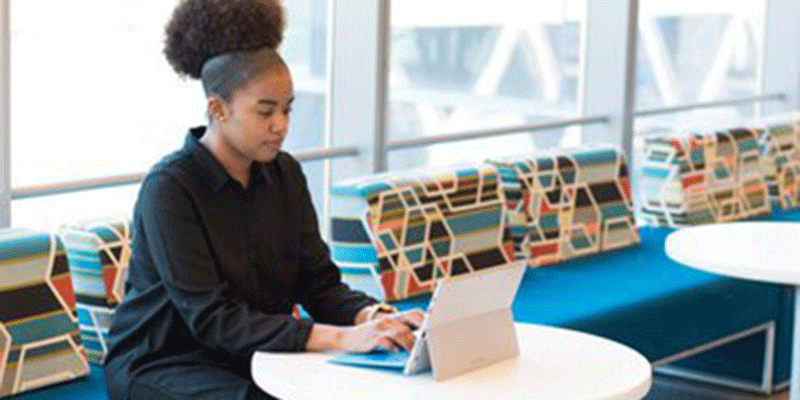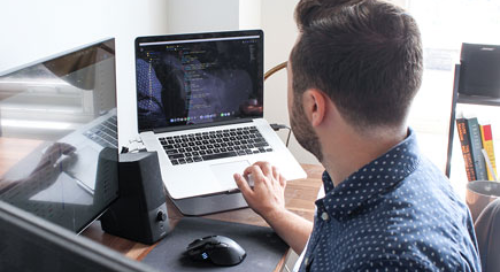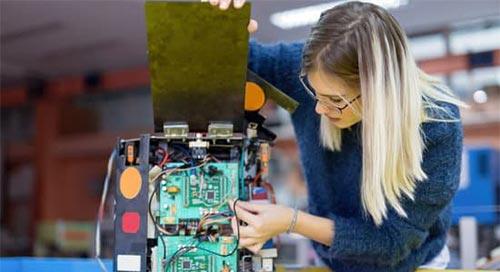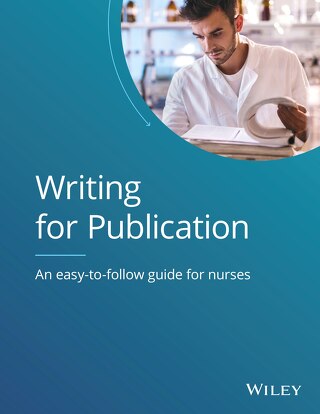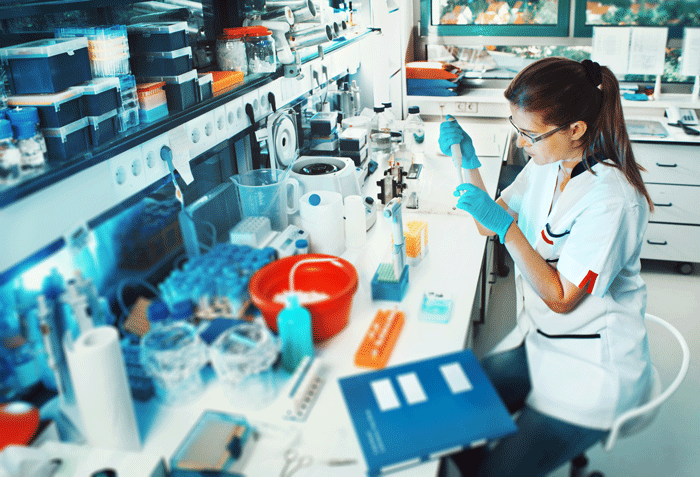a-day-in-the-life-of-graduate-student-christine-schwall
October 02, 2013
This is the first of a new series of blog posts by some of Wiley's young science advisors.
“Wake up in the morning feeling like M. Curie / got my goggles / I’m in the lab / I’m gonna rock this radioactivity…” Oh wait, I am not a world-renowned pop star, but in fact a pre-doctoral candidate at the University of Connecticut (UCONN) and I am pretty sure that, while I think my research is amazingly cool, most people would not consider laboratory work to be the stuff of which pop songs are made. To introduce myself, I am a fifth-year (almost to the end!) graduate student working toward my PhD in biochemistry at UCONN. I am completing my studies in Dr. Nathan Alder’s lab, which focuses on the assembly and functionality of mitochondrial membrane protein complexes. As a reminder from basic high school biology class, the mitochondria is the main site of ATP (energy) production within the cell, and my research concentrates on respiratory Complex II, an enzyme that is part of the ATP generating processes. Dysfunction of Complex II has been linked to various tumorigenic disease states, including gastric and colon cancers, as well as early-onset neurodegenerative diseases and the aging process. While I personally do not look at the direct link between Complex II and these diseases, I do focus on what makes Complex II tick.
A typical day in my life as an over-worked and under-compensated graduate student starts at 6am and often does not end until over 11 hours later. Days during semesters are filled with seminars, lab work, writing manuscripts and thesis chapters, and putting together lab meeting presentations. The summer at UCONN is the promised land for graduate students because the undergraduates go back into their holes (i.e. their homes) and parking spaces are abundant. In addition, those that teach have a few months of freedom from grading, and the summer softball league provides something to look forward to after days stuck inside the lab, gazing out our windows at the beautiful sunshine and gorgeous weather. In general though, whatever the season, I arrive in the lab and begin an experiment almost immediately. This consists of mixing together various components in a multitude of tubes, often in order to either complete an in vitro translation of a particular protein or an assembly reaction for nanodiscs, a model membrane environment that allows me to look at Complex II in a water-based solution even though it is a membrane-based complex. I will then look at the assembly of the subunits of Complex II or look at its activity under different conditions using spectrophotometers, fluorometers, gel-based assays, and other techniques. What is most frustrating about my daily lab activities is that they can either become monotonous OR else something I have completed 1,000 times before will one day decide not to work despite my having completed it EXACTLY the same as I did previously. I’ve begun to believe over the years that science is more art (and luck!) than science.
In between completing experiments, I can usually be found at my desk, typing away and working on a manuscript that I am preparing for submission, analyzing data, or working on a presentation for an upcoming lab meeting or seminar. As a senior graduate student in the lab, I also interact with my fellow lab mates and help the undergraduate students and newer graduate students complete various research projects around the lab. When I escape the lab for a few moments, I often run into fellow graduate students in the Biochemistry and Biophysics concentration at UCONN, since we share a floor within the laboratory building. I talk with my mentor, Dr. Alder at least briefly once a day. Once or twice a week we have a longer chat about the direction of my research, including troubleshooting those stubborn assays that have all of a sudden decided that they no longer want to work (which always seems to happen at the crucial moment when you need one more piece of data for a manuscript!).
Daily life as a graduate student is not entirely science-proofed. In fact, most of the graduate students I have befriended over the years share an appreciation for social interactions (against the grain of the stereotypical asocial scientists) and a love for microbrewed beer (which we can appreciate on both scientific and taste levels). The Biochemistry and Biophysics concentration also enjoys bimonthly Friday afternoon journal clubs that provide social interaction, good beer, freshly baked goods and salty snacks, and science, all in one place. Earlier in the day on Friday, the entire Molecular and Cell Biology Department) holds a graduate seminar, where fellow graduate students can share their research and gain feedback from their colleagues and mentors (and at which pizza is often supplied). I definitely appreciate the injection of friends and food during the long weekdays filled with challenging experimental procedures.
While I know that I have poked fun at my life as a graduate student in this piece, I have learned so much in the past four years and I continue to learn each and every day that I am at UCONN. I work in a lab that completes what is considered “basic research.” meaning that we study the fundamentals of mitochondrial membrane proteins and the miniscule changes that are occurring to cause these proteins to function properly and improperly. These findings will hopefully funnel down the line and assist those researchers who are looking to develop the drugs that will then be able to fix these problems and mutations. I really enjoy working in the Molecular and Cell Biology Department at UCONN, an accredited public research university which is in a great position for research at the moment because the state of Connecticut has promised an increase in funding in the coming years. This is allowing UCONN, to continue to grow, hire new faculty, and enroll more students, who can then work on the other unknowns that still exist in the world.
To leave on a funny note: my research career up to this point has taught me to expect the unexpected and try to keep a positive attitude no matter what the outcome. When trying to grow bacterial cells at one point early in my graduate career in order to isolate a plasmid with the DNA for a particular protein, instead of obtaining a lawn with lots of bacterial colonies, which is the usual outcome, I ended up with one single colony on my plate. About to give up hope (because I thought it was simply contamination), trash the plate, and start again, my mentor told me to check the colony for my plasmid of interest, just in case. And you know what? My plasmid was there. All it takes is one colony; all it takes is one researcher to make a difference. “Wake up in the morning feeling like M. Curie….”
Christine is a member of Wiley Advisors, a program for early career researchers and professionals to serve as a voice for their communities. For more information, please visit Wiley Advisors online or on twitter @WileyAdvisors.
Lyrical “Tune” derived from Tik Tok, by Ke$ha





